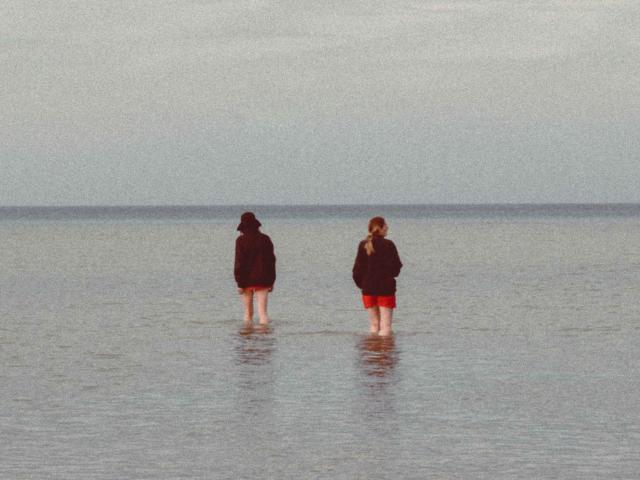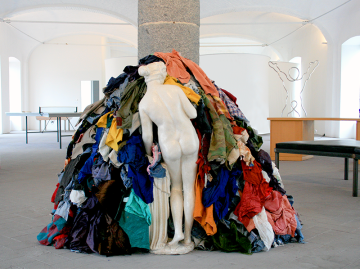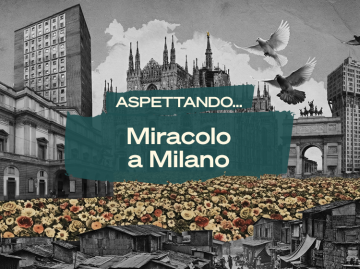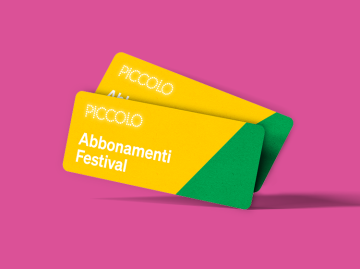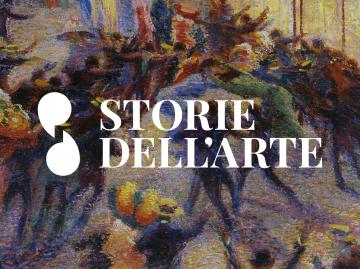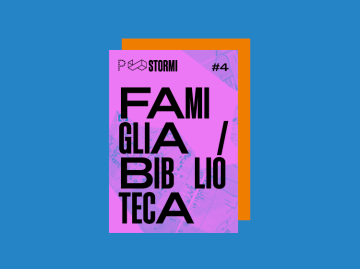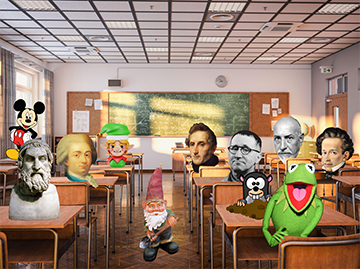Not the entire book – We Do Not Part, the new masterpiece by Han Kang – but rather shards of reality and dream, of historic trauma and poetry. The events focus on the 1948-uprising on the island of Jeji, in South Korea, when thirty thousand civilians were killed. It is an open wound that continues to torment two friends, just as it did the mother of one of them.
Not the entire book – We Do Not Part, a new masterpiece by the winner of the 2024 Nobel prize in literature Han Kang – but rather shards of reality and dream, of historic trauma and poetry. The events focus on the consequences of the 1948 uprising on the island of Jeju, in South Korea, where thirty thousand civilians were killed, their bodies dragged into the sea, hidden in a mine or crammed into trenches under the airport runway. For years, severe punishment was dealt out to anyone looking for the remains of their dead.
It is an open wound that continues to torment two friends, just as it did the mother of one of them, who had directly witnessed this crime. Women determined not to forget, drawing on the painful power of love. A form of affective resistance, like that studied by the anthropologist Chowra Makaremi, according to whom affection, having overcome its powerlessness, generates living memory and becomes a source of support, contrasting policies of cruelty.
Show in Italian with English and Italian surtitles
Please note that surtitles are not visible from stalls row 4 (seats from 2 to 5, and from 52 to 55), row 5 (seats from 1 to 13, and from 44 to 56); first and second balconies (seats from 1 to 7, and from 42 to 48); third balcony (seats from 3 to 7, and from 42 to 46).
Duration: the play is currently in production
Tickets
Not the entire book – We Do Not Part, a new masterpiece by the winner of the 2024 Nobel prize in literature Han Kang – but rather shards of reality and dream, of historic trauma and poetry. The events focus on the consequences of the 1948 uprising on the island of Jeju, in South Korea, where thirty thousand civilians were killed, their bodies dragged into the sea, hidden in a mine or crammed into trenches under the airport runway. For years, severe punishment was dealt out to anyone looking for the remains of their dead.
It is an open wound that continues to torment two friends, just as it did the mother of one of them, who had directly witnessed this crime. Women determined not to forget, drawing on the painful power of love. A form of affective resistance, like that studied by the anthropologist Chowra Makaremi, according to whom affection, having overcome its powerlessness, generates living memory and becomes a source of support, contrasting policies of cruelty.
Show in Italian with English and Italian surtitles
Please note that surtitles are not visible from stalls row 4 (seats from 2 to 5, and from 52 to 55), row 5 (seats from 1 to 13, and from 44 to 56); first and second balconies (seats from 1 to 7, and from 42 to 48); third balcony (seats from 3 to 7, and from 42 to 46).
Duration: the play is currently in production
Credits
Che dolore terribile è l’amore
WORK IN PROGRESS – PERFORMANCE
based on We Do Not Part by Han Kang
dramaturgy and directing by Daria Deflorian
with Benedetta Barzini, Daria Deflorian Monica Piseddu
project shared with Monica Piseddu and Andrea Pizzalis
scene curator and director’s assistant Andrea Pizzalis
lighting design Giulia Pastore
sound design Emanuele Pontecorvo
off-stage voice and vocals Monica Demuru
artistic consultant Attilio Scarpellini
dramaturgy collaboration Nikolai Palmieri
dramaturgy consultancy Eric Vautrin
for INDEX Valentina Bertolino, Francesco Di Stefano, Silvia Parlani
an INDEX production
co-produced with Piccolo Teatro di Milano – Teatro d’Europa, Emilia Romagna Teatro ERT / Teatro Nazionale, Teatro di Roma – Teatro Nazionale, TNC Teatre Nacional de Catalunya, théâtre Garonne, scène européenne – Toulouse (co-production to be defined)
with the collaboration of the Korean Cultural Center in Italy, L’arboreto - Teatro Dimora di Mondaino, Residenza Olinda/TeatroLaCucina
with the support of MiC – the Italian Ministry of Culture
copyright © Han Kang 2021
copyright © Adelphi 2024
TICKETS
Stalls Full price € 40 | Discounted (under 25 and over 65) € 23 | Piccolo <35 subscribers € 15*
Balcony Full price € 32 | Discounted (under 25 and over 65) € 20 | Piccolo <35 subscribers € 15*
*Piccolo <35 subscribers may purchase up to 2 tickets at a price of € 15 each for each show in the Festival programme
Discover how and where to purchase
SUBSCRIPTIONS
Festival Subscription | 2 shows
Full price € 45 | Under 35 and over 65 € 36
Festival Subscription | 4 shows
Full price € 75 | Under 35 and over 65 € 60
Subscriptions are by name. Tickets and subscription vouchers purchased cannot be cancelled or substituted, or be used for dates or times other than those indicated.
Classic, ORO and Piccolo <35 subscription vouchers can be used for the Festival performances.
Purchase a Festival Subscription online
For information on tickets and subscriptions for organised groups:
tel. 02 72333216
email promozione.pubblico@piccoloteatromilano.it
